|
There are a few guarantees in this life. Some say it is death and taxes. Purdue basketball fans, such as myself, will add Matt Painter. But there is another guarantee in life, and it is one that is as uncomfortable and taboo as death: suffering. Death, taxes, Matt Painter, and suffering. The suffering we think of most often is typically connected to death - the suffering of a cancer patient or of someone who has been in a tragic accident. This suffering is very real, but also extraordinary. I do not mean that this suffering is somehow alien to the human experience; it is deeply real and personal to those who experience it and their loved ones, but that it is truly extra (outside of the) ordinary. Ordinary suffering comes in many forms: the lack of sleep felt by new parents, the inability to pay one’s bills after being laid off, the end of a relationship that seemed to be perfect, the inexplicable change in direction from the Lord after following a path that seemed ordained by that same God. These, and countless other examples, are the suffering of the day-to-day life of the human person. There is a human tendency to compare suffering. “Well, their suffering seems so much worse than mine, so mine must be insignificant, and my response to my suffering is somehow overblown or distorted.” But this reaction is what is distorted. Suffering is, as I said at the start of this blog, guaranteed in life. That is a pretty undesirable guarantee. All we have to do is look out into the world, or just rewatch the movie of our own lives to find some sort of suffering, whether great or “small.” The question is not if we will suffer, but how we handle suffering and what it does in our lives. I am personally unable to understand how one can endure suffering without some sort of conception of God, and more specifically a personal relationship with the God who became man and who suffered and died for us. It is just that relationship that has gotten me through the traumatic death of my father just over five years ago and the daily suffering that is thrown my way. Suffering can easily make a strong person crumble, so the first thing we should do is realize that we are not strong, but weak. We are the sick that Jesus professes need a physician in the Gospel of Matthew. The physician is the only one who can prescribe the medication of grace needed to help us through our suffering. The grace is dispensed to us not through pills or syringes but through prayer. It is only through constant prayer, which is the reception of the transformative love of God, that suffering has meaning and can be endured. Sr. Ruth Burrows says in her book Essence of Prayer that God’s touch in our lives, “however lightly, means I suffer,” (Burrow, 38). Prayer opens us up to the fact that we are nothing, we are weak, we are in great need and, “it is then that I really experience that I need Jesus and everything depends on my living this out, letting go of the controls, handing them over to him and accepting to have no holiness, no achievement of my own, to be before God as nothing,” (ibid, 39). This is the bottom line of suffering. It is not gratuitous, meaningless, or completely nonsensical; it is the process of being stripped of all of our egotistical and self-seeking tendencies that leave us closed off to God’s healing touch. Patient endurance of the suffering we experience is the way that we are prepared for life with God. How do we know this? Because Jesus Christ took on human form and lived in perfect obedience as the Apostle to the Eternal Father. Jesus’ life found its highest fulfillment in obedient suffering and sacrifice in the Garden of Gethsemane, at the Pillar, on the road to Calvary, and on the Cross. In his suffering, Christ took on all of ours - from the suffering of a broken heart to the suffering of death - and brought them meaning. In fact, it was the signs of his suffering that he kept after his resurrection as trophies of his victory over death. It was these same signs of suffering, Jesus’ wounds, that proved the resurrection to Thomas. Our wounds, our suffering, participate in the suffering and wounds of Christ. Thomas experienced the Risen Christ in His wounds, and we too experience Him in our wounds. Suffering is a guarantee, but it does not end as pain- it leads us to victory, to intimacy with God, and brings us to God as empty vessels for him to fill with his glory.
0 Comments
As a child, I played a favorite game with my friends called “follow the leader” where everyone did exactly as the name suggests – followed the leader. If you didn’t do what the leader did you would be eliminated from the game. This game correlates to the Christian life: when we follow Jesus and do what He did, we reach our heavenly destination. We are wise to remember and heed Matthew 18:3-4: “Unless you become like children, you will not enter the Kingdom of heaven. Whoever becomes humble like this child is the greatest in the Kingdom of heaven.” How important it is as an adult Christian to always have the willing mindset of a child – to follow the leader with joyful expectation and simple trust. This reminds me of a remarkable event in my life that illustrates this concept. Several years ago, when our four youngest children were still living at home, we embarked on one of our family camping vacations. Having a large family, we had chosen camping as a way to enjoy a vacation together while on a budget. It removed all the distractions of our life of modern conveniences and afforded us time in the great outdoors to relax and build memories. This particular adventure took us to Cloudland Canyon State Park on Lookout Mountain, on the border of Georgia and Tennessee, a glorious place high in the mountains with astounding stargazing at night and amazing hiking trails during the day. One day we chose to traverse the Waterfalls Trail. The sign at the trailhead read “Steep grade ahead, use caution. Stay on marked path.” That should have been my moment of truth, my opportunity to bail and choose to sit on a bench and enjoy the 1780 ft vista and await my family’s return. But I ignored the queasiness in my stomach and forged ahead with them as they vivaciously marched down the canyon on a slim, winding trail. My stomach began to ride higher into my chest, my breathing was becoming fast and bordering on gasping and my feet were becoming heavy and unsure on the many twists and turns. After we passed under an enormous rock overhang, my body halted and I literally could not take another step. I was paralyzed with fear. Did I forget to mention, I’ve suffered from overwhelming fear of heights ever since I was a teenager? It was alive and acutely crippling on this day. As I watched my children bounding ahead and walking precariously near the rim of the steep trail, the fear gripped me to the point of panic. My husband kept telling me to look ahead, not down, and to follow his footsteps so that I would be safe and secure. The more I thought about moving forward, the stiffer I became. Moving at all in this way was sure to make me more apt to stumble. On my own steam, I could not go any further. I was at an impasse. With wisdom and child-like trust, my husband gathered our children all around me and asked each of them to lay their hands on me and to pray for all fear to cease so that I could be free to walk with joy and confidence. They did not want to leave me behind or to turn around and abandon the hike to the waterfalls. After several minutes of prayer, my breathing slowed to normal, my heart stopped racing, I unclenched my fists, and my legs relaxed. I felt a distinct release of tension in my body and my mind – so much so that I knew that I could resume the hike without fear. It was a healing miracle I claim to this day, as I can now hike steep mountains and enjoy magnificent views from heights that I could not before. My husband and children were instruments of faith who infused the peace of Jesus into me so that I could follow the leader and enjoy the boundless beauty nature had to offer on that hike. Later that night, my husband commented that Jesus healed me and gave me sure feet to traverse the steep path with assurance. I will never forget that manifestation of God’s love for me and I am willing to continue to follow the leader on all the paths He takes me because I know He will give me strength and guidance every step of the way. I am comforted by the instruction in Matthew 7:13-14 where Jesus says: “Enter by the narrow gate, since the road that leads to destruction is wide and spacious, and many take it, but it is a narrow gate and a hard road that leads to life, and only a few find it.” As humans, we cannot find and walk this path on our own. We need a leader, but we also need to be aware of all the people God places in our lives who provide guidance and leadership when we need it. It is part of the mystery and beauty of living in community with others in this life. If I had not yielded to the assistance of my family, I would have remained in bondage to crippling fear. I received help to navigate off the wide road of self -doubt and irrational panic that is destructive. With simple child-like trust and prayer, I was able to stay on the narrow path that led to a glorious adventure and freedom! My prayer is that each of us practices the obedience of following the leader so we can navigate the path that leads us to eternal peace. It is certain to be rough, but instruction is always available to us. We have to be humble and have child-like trust to adhere to the direction He provides. “Whoever wishes to come after me must deny himself, take up his cross, and follow me.” Matt. 16:24 “The beginning of all effort is the recognition of what is.” -Romano Guardini, Learning the Virtues That Lead You to God, 1963 Professional athletes do many appearances while playing. We get paid to show up at fundraisers, youth camps, watch parties, and promotional events. Something that is practically a guarantee when attending these appearances is one or more sets of parents coming up to tell us about their child who plays soccer. Often these conversations are quite enjoyable, but almost inevitably, there are a few who want to talk about how their son or daughter was short-changed in their youth soccer experience. There is a lot that these parents say to us, but the consistent element is: my child didn’t succeed because of some external factor. This may very well be the case for some of them. It is equally true, however, that it is certainly not the case for all of them. Much of the time the boy or girl just wasn’t good enough for a particular team, level of competition, or system of play. The point of this post is not to drop the heavy hammer that many kids run out of the athletic ability rope and should give up. No, this post is about the absolute necessity of taking an honest stock of where someone actually is--especially for the spiritual life. Romano Gaurdini says that “the beginning of all effort is the recognition of what is.” The reason for this being that you cannot begin making the effort to improve unless you start with who you already are. Any professional athlete will tell you that it is far more helpful to be taught how to assess and address weaknesses rather than to pretend they don’t exist. In fact, most professional athletes are fairly obsessive about identifying areas in their game where they can improve. If I determine I’d like to be a better shooter with my right foot, for example, then I must begin with the harsh—but necessary—reality that I can barely complete a pass with my right foot. If I never acknowledge my current ability, I’ll constantly run into problems—poor technique, inadequate fundamentals, and so on. I’ll never become a strong shooter without addressing the plain truth of my current ability. This is a skill that requires disciplined practice and will never simply be acquired because I want it to be so. First comes acknowledgment, then a plan for improvement, all for the hope of becoming a good right-footed shooter. This same principle can and should be applied to our spiritual lives. Just as improvement can only take place in athletics by beginning with where an athlete currently is, spiritual advancement can only begin by taking an honest assessment of where one currently is in relation to God. This means you’re far better off admitting that you struggle to pray for 5 minutes and taking that to God than wondering when you’ll receive the Stigmata. It is far more helpful to search deep within yourself and locate and name your pride, selfishness, ego, envy, or lust than only present to God your most pious and holy thoughts. He knows your heart already—He’s just waiting for you to know it as well. One of the most helpful exercises for high-school, collegiate, and professional athletes is to watch film in order to identify strengths and weaknesses. The team watches the most recent game in order to see what needs to be addressed that week in practice. This same concept can migrate into our spiritual lives—we look for points of departure and development in order to draw nearer to God. This practice is not to discourage but to improve. There’s no shame in acknowledging ourselves as we really are. In fact, God can really only begin to heal us once we acknowledge where we are hurt. The Physician cannot tend to our wounds unless we let Him see them. Several days ago, I was talking to my wife about this concept and she brought up how watching film for athletes is similar to the examination of conscience recommended by the Church. Examining one’s conscience on a regular basis is like looking back over the tape to see the strengths and the weaknesses—the graces and the sins—in order to grow. Then, with this self-knowledge, we can go to God, say thank you, and ask for forgiveness, trusting in His merciful love. God looks down on us and loves us as we are, but He also promises that His love is transformative. He looks down and says, “I love you,” while at the same time calling us higher. He wants us to identify what is so that we may cooperate with His grace and begin the beautiful work of improvement. This we call sanctification. May we all be willing to look at ourselves honestly—as we really are—so that we enter into the effort that is the fight of faith (cf Jude 3), trust that God’s grace is sufficient (see 2 Cor 12:9), and become the saints Jesus Christ died for us to be.
“What is man that you are mindful of him or the son of man that you are for him?” Ps. 8:4 In a time such as this, in the middle of a worldwide pandemic, many people are tempted to ask questions: Why is this happening Lord? What will become of me? Have you forsaken us? Do you still care for us? As Catholics, we need only to search the holy scriptures to find our answers. Isaiah 41:10-13 says “For I am the Lord, your God, who takes hold of your hand and says to you, do not fear, for I am with you; be not dismayed, for I am your God, I will strengthen you, I will help you, I will uphold you with my victorious hand.” In the midst of overwhelming craziness, staring down the face of so many unknowns, this verse gives me such comfort! I read it and remember the Israelites wandering in the desert for a very long time, not knowing how or when they were going to be delivered to the Promised Land, and it puts this situation in better perspective. From history, these people were fed and their needs provided for because God promised He would help them. I do not need to know when this specific disease will be eliminated. I do not need to know how long my ‘normal life’ will be turned upside down. I do not need to worry if my basic needs will be provided for. I have a promise from the Almighty. His promise is unbreakable and everlasting. So where does my anxiety come from? It comes from not leaning on His strength, not trusting in His provision, not resting in His perfect love. I need to spend my time praising and thanking Him for the fact that He cares about every minute detail of my life and has told me He will not abandon me – unequivocally! Upon my rising, I must choose to be grateful for another day to live in service of my husband, my children, and my neighbors. When I begin in gratitude, I can step forward into the day with all it’s uncertainties and live in peace, not in fear. “Cast all your anxiety on him because he cares for you.” 1 Peter 5:7 When I recall that God cares for each of us with a love that is perfect, this knowledge begins to settle in my heart and permeates my soul. It is an act of surrender – to cast my human weaknesses on Him and go about the duties of my day with a disposition of peace and hope. St. Paul reminds us in 2 Timothy 1:7: “For the spirit God gives us does not make us timid, but gives us peace, love and self-discipline.” This applies to all of us – not just the people in Ephesus a couple thousand years ago! God’s love is timeless, limitless, and eternal. It is beyond our human comprehension. It requires us to choose to believe and experience Christ’s love within us. You see, we have more important things to be doing than spending our time questioning, worrying, wondering, lamenting, and fearing. He reassures us over and over that He is near, is helping us, and is carrying us. We have evidence of His care for us in the many selfless people on the front lines serving our medical needs, manning our stores, and delivering our supplies. They are God’s love made manifest in this crisis. It is our choice to decide that we will believe this and trust moment by moment that His promise is true and secure. We don’t have to fully understand it – because we won’t – but in order to live in serenity with a calm mind, we must choose to walk in complete belief. We can accomplish this amidst great trial, because He is our helper and our strength, our strong tower. As we live in the disposition of faith that God will care for us in all circumstances, we can reach out to those around us and share this magnificent gift. We can be His hands, His voice, or His smile to quell the fear in another. This is our call as Christians – to wholeheartedly believe and to unconditionally share it with everyone. It seems so simple. And it is – when we devote ourselves to prayer and fasting and Scripture reading. We are afforded so many wonderful ways to do these. We have our Bibles in book form, on our tablets and phones. We can stream Masses being offered in churches all over the world right from our couches. There are numerous holy men and women who speak and write about God’s promises that we can listen to or read. In our progressive digital age, it is amazingly easy to immerse ourselves in material that will strengthen our belief and encourage us in the truth of God’s care for us. How fortunate we are! We can go about our days, in the middle of great strife, with confidence that God is mindful of us, each and every one of us. “Whoever trusts in the Lord is kept safe.” Proverbs 29:25 Still, because I am just a mere mortal with lots of frailties that can derail me from the Godly path, I keep reminders on the walls of my home to keep me focused on this truth. A wooden sign that reads ‘Expect a Miracle’ hangs in my family room. The Good Shepherd cradling a sheep hangs in my dining room. Pictures of the Sacred Heart of Jesus and the Immaculate Heart of Mary hang over my bed. The face of Jesus hangs in my living room. Crucifixes hang in every room. These are my personal visual reminders of the love of God that help me keep my eyes on Him, my heart comforted, and my mind at peace. I recommend everyone find tangible ways to stay connected to this truth so that we can be disposed to share it with others. It is when I live from this mindset that I can sing with total confidence that it is well, it is well with my soul! “Consider it pure joy, whenever you face trials of many kinds, because you know that the testing of your faith develops perseverance. Perseverance must finish its work so that you may be mature and complete, not lacking anything. If any of you lacks wisdom, he should ask God, who gives generously to all without finding fault, and it will be given to him. But when he asks, he must BELIEVE and not doubt.” James 1:1-8 Who are we that God cares for us? We are His. He thought us into being because He is love and He wants to share His love with us for time and eternity. That is a comfort and a confidence I can rest in! This is the Savior who is mindful of me. Thank you, Lord! Continue to shower me with the grace to walk steadfast in my belief. No matter the trials or circumstances, God is with us and all will be well. We are living through an unprecedented time. Just a few months ago, I couldn’t have been more excited for the spring weather, finishing maternity leave, and being able to bring my now-2-month-old to visit family and friends. That is not our reality. I am devastated that I cannot share my happiest joy with people who love my son in-person. My heart breaks for my grandmother who has never met her great-grandson, for relatives who live in different states who have yet to see him face-to-face, and for the inability to even host people safely at our home. It’s painful to think about, but knowing we’re staying safe and healthy is a relief. This past Easter weekend was when we would have been traveling to visit family. Instead of focusing on the “would-haves,” I’m challenging myself to live in the “right-nows” and the “will-bes” even though it is so difficult. Right now, my little son is snuggled and sleeping sweetly near me. Right now, my family is healthy and safe from the virus. We will be able to get through this together and will be okay when this is over, although there is no timeline to lean on. Right now, God is watching over us and protecting us as he has always done and will do. The season of Easter that just began serves as joyful relief to my fearful and saddened heart. I know that when Christ died on the cross, Jesus’ disciples were experiencing these feelings, too. In Mark’s Gospel, we read about the disbelief that plagued his followers after hearing that Jesus was not in the tomb, “When they heard that he was alive and had been seen by her, they did not believe” (Mk 16: 11). Jesus’ disciples doubted and were unbelieving, like so many of us during this pandemic. But, in John 16: 22, Christ encourages, “So you also are now in anguish. But I will see you again, and your hearts will rejoice, and no one will take your joy away from you.” In Matthew’s Gospel, we furthermore hear Christ tell his disciples, “And behold, I am with you always, until the end of the age” (Mt 28: 20). With these passages in mind, I find comfort in this Easter season knowing that however inconvenienced and pained some of us are, with God at our side this will soon pass, and we can be happier than ever before. For those who share an even more difficult level of grief from losing a loved one, may you find peace in the knowledge of eternal life with the Father. In 1986, Pope Saint John Paul II spoke to Catholics in Australia saying, “We are an Easter People and Alleluia is our song!” He went on to say, “We realize that joy is demanding; it demands unselfishness; it demands a readiness to say with Mary: Be it done unto me according to thy word’”... and later goes on to implore the Blessed Mother to pray for us saying, “Help all your children to see that the good things in their lives come to them from God the Father through your Son Jesus Christ. Help them to experience in the Holy Spirit the joy which filled your own Immaculate Heart. And in the midst of the sufferings and trials of life, may they find the fullness of joy that belongs to the victory of your Crucified Son, and comes forth from his Sacred Heart. In this way, let us try to do the same.” As Easter people then, we cannot forget that during this time of great trial, our hearts already know of great sorrow followed by even greater joy. We are fortunate to be able to stay connected through this hard time with the help of social media and technology. There are so many versions of video-chatting that we can choose from. Just saying hi to someone you miss might make both of your days a little brighter. Pictures and videos of the things that you find joyful may also bring joy to someone else, so try to share the good little things with others if you can. As we look for silver linings in this pandemic, let us pause and appreciate the good things right in front of us. Gratitude is one way to ease the pain. I’m grateful for my healthy little boy, my grandmother’s health, the beautiful day outside, my dog needing snuggles, and my husband being able to work safely from home. I pray for those who are not so lucky: those who are grieving, friends and family in isolation and alone, each and every worker who is away from their own family to fight this crisis on the front lines, and those in hospitals who are infected and sick. Right now, when I get sad about plans changing and people missing out, I stop and let Christ into my heart during this Easter season. Right now, when I start thinking of the many fears and anxieties from this pandemic, I breathe and let Christ in. Through it all, I trust that God’s will be done. In this Easter season, let us rejoice in the risen Lord! We can get through this with Christ who strengthens us! 3/31/2020 Altered States: Living With Adult Children During Coronavirus | COVID-19 ResourceRead NowAs parents in our early sixties, living in household with our 25, 23 and 19 year old adult children is proving to be an interesting challenge during this pandemic. We have successfully transitioned from training six little ones to launching three and sharing our household with the remaining three. Each of us lives what I consider ‘parallel’ lives under one roof. We all go to our respective jobs, enjoy our own friend groups, and participate in our specific extra-curricular activities, along with sharing family time together. It is a state of life that has forged a certain routine that is pleasantly habitable. Slam dunk us all into the middle of an unprecedented disease that turns our world upside down overnight – and our happy coexistence becomes challenged. We are forced to adapt to new schedules and new restrictions that we all must willingly cooperate with. Moving from government recommendations to ‘imposed sanctions’ is met with varying reactions from the five in our household. Those of us who are easily contented engaging in solitary activities are not so affected. We find new books to read, projects in the house or the yard, a nature series to watch, extra time to participate in the Chaplet of Divine Mercy, the Rosary and the Mass on tv. Those of us who are energized by hanging out with our peer group, attending public events, or going out to restaurants and pubs find these restrictions close to being imprisoned. Our foremost responsibility as parents during this uncertain time is to be very intentional in communicating with our young adults about the ‘rules’ and the ‘whys’ and the ‘wherefores’ of cooperating in a Godly manner to all of this. We speak daily of the importance of adhering to social distancing and the extra measures of hygiene and disinfecting while allowing our children to express their frustrations, share new information, and ultimately come to agreement to remain steadfast in cooperation when it is difficult. I can’t stress enough the necessity of speaking daily in a positive manner so that we all help keep each other accountable. Getting independent, self-sufficient young adults to operate from the same page is most definitely a tight rope act. I’m accompanying them in a way I never have before. It requires lots of talking and more listening. It necessitates creative ways of encouraging. Each family dynamic is different, but in my male-dominated household, what I have found brings us together is food. My plan these days has been to cook, cook, and cook some more! Preparing meals that satisfy and draw us together opens us to sharing our thoughts and feelings and encouraging one another with what we find most difficult. In our discussions, our adult children share their creative ways they have found to connect with friends and to cope with the temporary suspension of activities they regularly participated in. Our pace of life has slowed considerably. My job is on temporary shutdown, but everyone else still goes to their jobs on altered shifts with no work meetings. When they arrive home, I make sure a meal is ready and we talk and pray and relax together. They are quicker about getting their laundry done, and helping keep common areas of the house disinfected every day. This altered state of living builds character in each of us. We are being called to willingly forego engaging in activities we love for the greater good of our fellow man. Practicing restraint, perseverance, respectfulness, and kindness allows us to grow in holiness that builds up the kingdom of God. This witness promotes community and joy amidst the pain and devastation that is all around us. One activity we have purposely not engaged in during this pandemic is watching or reading the news regularly. We do not watch any major news telecasts and keep apprised of current affairs through government messages and the several medical people in our family. We choose not to obsess on what is happening hour by hour. Instead, we focus on praying, eating well, getting extra sleep, playing games, watching movies, reading books, and pursuing our hobbies in our home space. We essentially have created our own little bubble to weather this storm together while continuing to participate in our normal duties to the extent that complies with social distancing. We are fortunate to live in a digital age where we can access a degree of connectivity through our various devices and remain a safe distance apart. We were created to be relational. We do not want to live this way solely, but we have the privilege of being connected to others like no other time in history. So far, in our semi lockdown mode – no one has blown up at another, no one has a crazed look about them, no one has run away! We are all present and accounted for under one roof amidst significant life changes. Our home remains a sanctuary of harmony and peace. This altered state of living together is a fruit of ‘grace’ that I believe God is showering on us. He is equipping us as we pray with the virtues of prudence and perseverance. He is covering us with His balm of peace to behave respectfully and kindly to one another. I am mindful of my continued dependence on the Holy Spirit’s grace to guide me as a mother. My prayer is for parents everywhere to walk in faith with your children in the will of God and grow in peace and joy together, whatever the circumstances! “And a sword will pierce through your own soul also.” -- Luke 2:35 I have a tradition of watching Mel Gibson’s The Passion of the Christ every year, usually on Good Friday. However, this year I decided to watch it on Ash Wednesday to prepare me for Lent. Every time I watch it, something new stands out to me. This year, I noticed with particular clarity how Mary follows Jesus throughout every step of His Passion and, more specifically, the effect it has on Our Lord. Whether it be His arrest, scourging, or His walk towards Calvary, every time He locked eyes with Mary, His energy was replenished and His courage renewed. Granted, this is from a film, but it isn’t that difficult to imagine. The love that Christ had for His mother is beyond anything we can conceptualize. I’ve always found this—and her—to be somewhat mysterious and always a little bit beyond my reach of understanding. But I think reflecting on her title of “Our Lady of Sorrows” can encourage us to suffer well, especially during this Lenten season. Mary, perfectly united with the will of her Son, was always completely open to His grace and His love. Along with this perfect unity, however, came the most intense and acute suffering ever suffered after Christ Himself. It is said by many saints, including St. Ephrem, St. Ambrose, St. Bridget of Sweden, and St. Alphonsus Liguori, that Mary suffered an interior, emotional crucifixion during the Passion of her son. Additionally, due to her sinless nature, the intensity of her suffering during Christ’s Passion was beyond anything we can imagine. St. Bernardine of Siena once said, “the grief of Mary was so great that, were it divided amongst all men, it would suffice to cause their immediate death.” This suffering of Our Lady of Sorrows, so beautifully depicted in the film, is ironically comforting. Mary is the ultimate example of not only how to suffer, but also how it can glorify God if fully embraced. She shows us that even through our suffering we can fulfill the will of God. One can argue that much of her life—beginning with the prophecy of Simeon and continuing through the laying of Christ in the tomb—was lived in some degree of suffering, especially knowing what would befall her Son. But because she was completely devoted to the fulfillment of the will of God, her suffering was redeemed in and through the glory of the resurrection of Christ. The film depiction of Christ looking to His mother is also something we can learn from this Lent. Mary can be a source of strength and encouragement as we continue to do works of prayer, fasting, and almsgiving throughout these forty days. Mary suffered quietly and faithfully. She stood with her Son at the cross until the end, knowing in faith that his Passion and death would fulfill God’s plan and bring salvation to mankind. What can we take from this? Our Lady of Sorrows shows us that suffering well--that is, directed in union with God’s will-- can glorify Him and help us along the path to our salvation. This Lent, as I meditate on her walk with Christ toward Calvary, I am refreshed in the knowledge that our suffering doesn’t need to have a bitter end. If unified with Christ it can, and will, be redeemed in and through Him in eternal life. How can we make our walk through the desert and toward Calvary this Lent look more like Mary’s? \We are once again in the midst of the liturgical season of Lent. These forty days before the Triduum are opportunities to prepare ourselves to enter into the Passion of Christ through penitential practices such as prayer, fasting, almsgiving, and self-sacrifice. Done correctly, our Lenten practices can be cathartically cleansing as we imitate Christ’s forty days in the desert after His baptism. This incredible withdrawal of the Lord from the outside world to dwell on the calling of His Heavenly Father before the commencement of earthly ministry remains a model for us all. During Lent, the faithful do not isolate themselves from the world in fear but rather draw strength from Christ. Shaking off the comforts and complacencies of living in the world may be a bit jolting, but our ultimate goal is holiness; anything else is just a noisy distraction which can never truly satisfy our deepest desires. Today, technology has become integrated into our lives and relationships. Social media, the internet, and the incredible utility of our smartphones may occupy a large part of our daily attention. It’s no wonder we can find it harder to disconnect from the outside world. Indeed, while the proper and moderated use of technology can be beneficial, observing the dangers of failing to unplug from the world (i.e., harming real human connections), has helped deepen my appreciation for the isolation opportunities afforded by Lenten observances. Lent calls each of us to remember the ultimate sacrifice God Himself made on Good Friday. This salvific act is so significant that it cannot be restricted to just one day on the liturgical calendar. The Church commemorates Jesus’ Last Supper, Passion, and Death during the Triduum. As these days draw near, the faithful are called to prepare themselves to enter into the Paschal Mystery by putting aside our worldly comforts and imitating how our Lord spent precious time among His disciples before His death. While Lent is an increased time of preparation and time of intentional growth in holiness, the Church has no shortage of opportunities to deepen our relationship with the Lord year-round. Sunday Mass offers us the spiritual nourishment and proper grounding to start each week. The choices we make in the hours or days following Mass can build upon the scriptural and sacramental foundations laid during the service. Recommitting ourselves to our families and their needs can strengthen the love binding us together; praying with and serving each other builds up the domestic church. For example, volunteering to lead devotional prayers together as a couple or family is a beautiful expression of intimacy and faith. Additionally, during Lent and beyond, we may replace screen time with spiritual reading so we can be inspired by the writings of saints or theologians and discover new avenues of holiness for our lives. Certainly, we can sacrifice a worldly comfort during Lent, but we can also perform charitable works and make a difference in the lives of others during this season. Lent is not a diet! Lent is intended to bring us closer to God, Who is found not in the noise of the world, but in the quiet whisperings of an open heart. Prayer enables us to make room in our hearts for Him to dwell in the temples of our bodies and radiate through our lives. We cleanse ourselves of distractions that prevent us from the holiness He calls us to and we commit ourselves to prayer, fasting, and almsgiving. We repent of our sinful shortcomings and avail ourselves of the sacraments of the Church. Our desire to accompany our Lord can be fulfilled by our faithful vigilance in Eucharistic Adoration, especially in the nighttime hours when our “spirit is willing, but the flesh is weak.” Our Lord is present in the Eucharist we receive at Mass, the Sacrament we adore, the family we are a part of, and the people we serve. He is always ready to not just be a relegated part of our lives, but the core of our very being. The season of Lent can serve to motivate us to choose the better part rather than be complacent in the empty comforts of the world. Though we seek isolation from the distractions of the world to accomplish a meaningful and fruitful Lenten observance, we are promised by the Lord God Himself that we never walk alone when he says: “I am with you always, until the end of the age.” For more resources to accompany you throughout your Lenten journey, please click here. The arrival of New Year’s Day often brings with it resolutions, goals, and new words or phrases that help us try to shape the next 365 days before us. Things like healthy eating, stricter budgets, more time spent in prayer, and increased amounts of exercise define our drives for self-improvement. We give extra time to turn our focus inward to make ourselves stronger, smarter, holier, and healthier. In an attempt to change our lifestyles, we might separate ourselves from our previous habits, relationships, or preferences so that we can sharpen our focus even more on self-growth. We hone our discipline and increase our self-reliance in the name of improvement. In the new year, our focus is often inward. While this inward focus isn’t harmful in itself, we might find ourselves stuck in our self-reliance. Now that a few weeks into the new year have passed, many of those resolutions, goals, and mantras might have faded into the background of post-holiday life. At this point, many of us have lapsed in our new practices, or we might have abandoned our resolutions altogether. We might find ourselves isolated in the new patterns we have picked up or starting to flounder due to a lack of support. Even though our New Year’s resolutions may have been made with the best or holiest of intentions, we might find ourselves failing without others to encourage us, support us, or hold us accountable. While the new year is the time when our focus is inward, the weeks soon after, when our discipline begins to wane, give us cause to lean outward. What would it look like to lean outward in our resolutions in the weeks ahead by seeking others to help us carry them out? Why might allowing ourselves to be helped by others and accompanied by them lead us to a more meaningful and spiritually significant pursuit of our resolutions? Though as Catholics we frequently hear about accompaniment in a context of explicitly spiritual progression, its fruitfulness is still applicable in non-explicitly spiritual goals in an informal sense. As the final document from the Synod on Young People, the Faith, and Vocational Discernment reminds us, “accompaniment cannot limit itself to the path of spiritual growth and to the practices of the Christian life” (Final Synod Document, 94). Accompaniment can help us experience transformation in many areas of our lives in addition to our spiritual life, as it “fosters growth in holiness through everyday circumstances and interests” (The Art of Accompaniment, 15). Though on the surface it may look like simply reaching out for the help of a friend, seeking out accompaniment to help us carry out our New Year’s resolutions has a deep theological and spiritual significance. Accompaniment is a form of “bear[ing] one another’s burdens [in order to] fulfill the law of Christ” (Galatians 6:2). When we seek another’s help to bear our burdens, experiences, hopes, and challenges, we open ourselves up to be in communion with someone else; we profess that we were created by God out of love, to love, and to be loved by others. Accompaniment is a simple way by which we actively remember that “The LORD God said: It is not good for the man to be alone” (Genesis 2:18). When we seek the help of another, we affirm the beauty of being human: we’re not meant to live life completely on our own effort and initiative. Having a good listener, mentor, or friends helps us to turn our inward focus in our resolutions outward. We no longer remain alone in our efforts, strivings, or discipline. The support of another trusted person helps us remain steadfast in our resolution to be healthier, spend more responsibly, or love more generously. This support can take the form of a quick text from an accountability partner to check in on our progress, or a weekly meet-up with a mentor to discuss our challenges. Similarly, we can seek more formal relationships of accompaniment to help meet our goals. Beginning a relationship with a therapist might help us explore more deeply our relationship with others or just as seeking the help of a personal trainer might allow us to have the added accountability to eat more nutritiously or get physically fit. Relying on others in the pursuit of transforming ourselves reminds us of the beautiful gift of being human: as human beings, we can have a profound effect on one another in providing support, love, and encouragement in growing into the people God has destined us to be. Whether sought out in a formal or informal sense, accompaniment challenges us to let ourselves be loved by others in the simplicity and complexity of our everyday life. Allowing ourselves to be supported by others, even in something as simple as our New Year’s resolutions, reveals the deep significance of others to our vocation to holiness.
There’s a lot of preparation that goes into the holiday season. It seems in our secular society as soon as the calendar changes to November that the world begins buzzing with cooking, baking, buying, wrapping, and planning. Our calendars overflow with gatherings and obligations and before we know it, it’s a new year. As Catholics, we know that this time of year tells a different story. However, the loud hubbub of secular holiday cheer swirling around us can make it difficult to proclaim it, even to ourselves. What would it look like in our daily lives over these next few weeks if we as Catholics challenged ourselves, in this season of frenzied preparation, to prepare ourselves to wait? What might that look like? Here are a few steps that we can take. OBSERVE We cannot decipher what steps to take if we do not spend the time observing where our current steps are leading. Take some time over these next few weeks to observe your spiritual and physical life. Make note of the areas of your life that you feel you are consistently inviting the Holy Spirit to be a part of and those areas in which He has not received an invitation. Notice the time of day or week that anger, frustration, hurt, or anxiety creep into your heart and mind. Where are your moments of joy, praise, and thanksgiving? How are you caring for your physical body and its environment? Observe how you are fueling your body and your mind. Is the source and substance of that nourishment strengthening your body and mind to be the best version of yourself? Are you spending moments in joyful movement, whatever that may look like for your body, in praise and thanksgiving of the vessel that is fearfully and wonderfully made? Simply take time to observe and collect information on your current state. Try not to put a label or judgment on your observation, but rather work to build your awareness. REFLECT Once you have collected your observations, spend some time reflecting on this newfound information and present it at the foot of the Cross. Implore the Holy Trinity to open your eyes and your heart to reveal to you the areas in your life that could be improved or strengthened. Ask for divine intervention to reveal to you the strengths that you possess and the gifts and talents that have been given to you. How might you utilize these strengths, gifts, and talents to bring life and light to those areas of your life that may be lacking? Be patient in your reflection. Do not be afraid of silence! It is often within the quiet of silence that He will make His presence known to you. Allow this prayerful, reflective time to turn your observational information into knowledge. ACT It’s time to turn that knowledge into a plan. Through your observation and reflection, you will have gathered the necessary tools to be able to move forward in your journey. Carry the strengths that have been revealed to you and humbly face the shortcomings that you have observed. What does action look like for your journey? What steps are required to strengthen areas of your spiritual and physical life that may be lacking? Put your plan into practice and remain vigilant and prayerful of the different ways that you can tweak your plan. WAIT We have spent the remaining weeks of the liturgical year in observation, reflection, and action… and now we wait. As you enter into the Church’s new year and the season of Advent, commit to the action plan you have created and joyfully await the celebration of the birth of YOUR Savior. If you’ve put the work into the first three steps, you will find that your action plan is in fact leading you to prepare for the tiny babe wrapped in swaddling clothes. “For a child is born to us, a son is given us; upon his shoulder dominion rests. They name him Wonder-Counselor, God-Hero, Father-Forever, Prince of Peace.” (Isaiah 9:5) Prepare to wait. Prepare the way. Prepare the place and invite Him to take residence in you – body, mind, and soul. For more resources to accompany you during this Advent season, please click here. “I looked into my deepest wound and was dazzled by your glory.” – St. Augustine of Hippo (attributed) My favorite Gospel passage has always been Mark 3:2-5: “And they watched him, to see whether he would heal him on the sabbath, so that they might accuse him. And he said to the man who had the withered hand, ‘Come here.’ And he said to them, ‘Is it lawful on the sabbath to do good or to do harm, to save life or to kill?’ But they were silent. And he looked around at them with anger, grieved at their hardness of heart, and said to the man, ‘Stretch out your hand.’ He stretched it out, and his hand was restored.” Why did Jesus ask this man to stretch out his hand? Didn’t He know there were people around who would be able to see what was probably this man’s greatest insecurity? Didn’t He understand that this man had been judged and ridiculed enough throughout his life? That his deformed hand—and himself—was looked upon with disgust? Why would Jesus ask him to stretch it out, being all the more visible to the crowd around him? Jesus could have easily healed his hand while it was still hidden. Why cause more pain? Of course, Jesus was aware of the people around him who could see this man’s deformity. In this moment, however, the man with the withered hand probably felt like the only person in the room. What was happening between him and Jesus was the creation of an eternal bond, a divine exchange. This man wanted to be healed; who wouldn’t want the Divine Healer to rid us of our imperfections? But Christ asks the man to stretch out his hand so that he could participate in his healing. So that, in essence, he would tell Christ, “Here is my wound. I want to be healed.” So that it would be the work of Creator and created, an exchange of love, a sign of trust, a unification of suffering. Our redemption as Christians is comprised of many things, but the two I see most often are the participation with Christ in our healing by uniting our suffering to His on the Cross and the offering of our suffering for the benefit of another. In each way, we are actively engaging with the Divine Healer to find His strength through our pain and confidence in the midst of our flaws. When we invite God into our wounds, he transforms them. As St. Augustine said in the quote above, we can be dazzled by the glory we find there. As Catholics, we often hear in regards to suffering the phrase “offer it up.” I think this can sometimes belittle what is truly going on. When we sit before God and say “here are my wounds, here is my pain, hurt, and suffering—heal me,” something supernaturally transformative occurs. We are unifying our wounds to Christ’s wounds on the Cross and, wound for wound, are transforming our suffering into an act that is redemptive. When we participate with Christ in our own healing through suffering, Christ takes that free act of love and can use it to not only heal you, but to transform you to be more like Him and help others to also be transformed. How can actively participating in your healing transform others and lessen their suffering? Well, I think it is mostly a mystery. But allow me to unpack what I think occurs. Each amount of suffering offered up is like a quarter being placed in a jukebox. Once inserted, it enables the rest of the room to hear the music. The whole room is transformed. So too by offering your suffering to God, your fellow man can receive the sweetness of your pain and be converted by the beauty of your love freely given. Each contribution to this divine economy enhances the unity of the Mystical Body of Christ. The heavens move, the saints and the angels engage, and the supernatural world comes in contact with the natural, bridging the gap between heaven and earth just a little more. By inviting God into our hurt, giving our suffering to Him for the sake of others, and by showing it boldly like the man with the withered hand, we can participate with our Creator in becoming whole. This is the beauty of our faith—that our suffering is not our end, but rather the avenue by which we grow closer to Christ. “God withholds Himself from no one who perseveres.” –St. Teresa of Avila, Doctor of Prayer Perseverance always sounds nice; you hear the word and think “yes--I can do this!” Lately, I’ve been struggling to persevere in prayer. To combat this, I’ve found my American industriousness kicking in—resulting in my desire to impose on myself a strict prayer routine akin to that of St. Teresa’s (“If I just work hard enough, I’ll be levitating like St. Teresa in no time!”) only to wonder why it all seems to fall apart after 2 days. Discouragement soon follows, and I feel like I’m back at the beginning. I have fallen into this trap several times since I started taking my spiritual life seriously a few years ago. At the beginning, persevering in prayer and good spiritual habits can seem daunting. But the need for perseverance is a normal part of our spiritual journey. Sometimes prayer comes easily, sometimes we struggle to quiet our minds. As St. Josemaria Escriva said, “As the flames of your first enthusiasm die down, it becomes difficult to advance in the dark. —But that progress is all the more reliable for being hard. And then, when you least expect it, the darkness vanishes, and the enthusiasm and light return. Persevere! (Furrow No. 789)” It wasn’t until I heard the same advice from my spiritual director for the 100th time, combined with many Catholic podcasts and YouTube Videos, advice from friends, and books, that it finally dawned on me: you can and should tailor your spiritual life to fit your state in life and your personality! In doing so, you will find the strength to persevere. I made the mistake of thinking that the only way to grow in holiness was to follow the exact path of my favorite saints, only to end up frustrated as to why it wasn’t working or giving me any peace. After this struggle, I’ve learned four simple tips that have helped me develop better habits and persevere (and grow!) through a better spiritual routine.
As St. Francis de Sales also said, “Do not wish to be anything but what you are, and try to be that perfectly.” Get to know yourself, what spirituality works for you, and persevere! For more resources to deepen your spiritual life, click here. The Gospel reading for the Fifth Sunday of Lent is the familiar passage of the adulterous woman and her accusers. For as long as I can remember, this story has been bittersweet: it involves targeted harassment and shame, but also redemption and conversion. At this point in Lent, I don’t think there is a more needed, or relatable, lesson for us to be reminded of and to work on accepting. So, we’re five weeks into our Lenten journey. We’ve been skipping meat on Fridays and trying to live without whatever convenience or vice we decided to give up or purge from ourselves. Maybe we’re praying a little more than we normally would or are setting aside a few minutes to read a daily reflection from those little black books left in the back of our churches. But even with all of these intentional and humbling acts and motivations, we often still feel unworthy or like we’re faltering. Because of this, it’s possible to say that we don’t even need the Pharisees to judge us and bring us for judgement before God – we’re doing it enough for ourselves. To overcome this, I want us to reflect on three things: personal attitude, an open heart, and recognizing what’s in front of us. I think sometimes we’re too hard on ourselves. We allow our own harsh judgements to replace the only one that truly matters: God’s. Our own personal attitude can prevent us from accepting and sharing in the love and grace of God if we constantly feel that we are unworthy or failing. In the Gospel, when the adulterous woman is brought before Jesus, it does not say that she cried or tried to run. In the Gospel account, she lays at the feet of Jesus, lets Him clear her name and, ultimately, lets Him forgive her sins. Here’s a secret I’ve learned that the Gospel has been trying to tell us for a few thousand years now: Man is never worthy on his own, but has been made so by Christ, who offers redemption to all. If man were worthy, Christ would not have needed to redeem us after the Fall. So, we need to stop allowing our own negative perception of our efforts to prevent us from bearing or receiving the fruits of God’s grace and forgiveness. Why was Jesus’ reaction effective with the woman? Christ did not condone her sin, but met the woman in her sinful situation with love and mercy. Surely, such a transformation is not possible without a profound encounter with God’s mercy, an openness to change, and conversion of heart. The adulterous woman of this week’s Gospel is told by Jesus to “Go, and from now on do not sin any more” (John 8:11). As a result of her encounter with Jesus, her heart was changed, and she spent the rest of her life trying to grow closer to Him. We are called to do the same – during the Lenten season or any other time. If we are open to the love of God, it will fill us and strengthen us in our actions. With a faithful attitude and a heart that is open to change, all that is left is for us to encounter God. In order to do this, we must recognize what is in front of us. In the challenges, relationships, beauty of nature, art, and moments of prayer, God is entirely present and inviting us to share in it with Him. What a beautiful gift, and how accessible and truly joyful this is for us! I want to suggest that each of us take a few moments each day this week to reflect on how we’ve gone out of ourselves to be with or grow closer to God. Instead of grumbling about how much we miss Netflix or those amazing chocolate caramels, be proud of yourself for being so committed to your solidarity with Christ and His own suffering. Or, if you tripped up, instead of getting frustrated with yourself, reflect on the three Stations of the Cross in which Jesus falls. Absolute perfection is never what God expects or even desires – He’s just pleased to recognize a desire in us to do better. For more resources to accompany you along your Lenten journey, please click here. Question for Reflection: How can you grow closer to God in the final days of the Lenten season? “Jesus bent down and began to write on the ground with his finger.” - John 8:1-11
During this fifth week of Lent we are reminded that Jesus’ calm heart of contemplation should be our guide in strengthening our dependence on Him, allowing us to minister with renewed and clear hearts. As I read today’s Gospel, I was drawn not to his words or the main plot points that unfold, but rather I found my heart gravitate most towards this line: “Jesus bent down and began to write on the ground with his finger.” I’m sure I’m not alone in what comes to mind when I think about the legacy of Jesus: turning water into wine, walking on water, healing the sick...my mind never lands on this action of lowering himself to the ground and drawing in the dirt with his fingers. He stops in his tracks, undoubtedly with everyone around Him holding their breath for His response to the scribes and Pharisees, and he takes the time for discernment, for contemplation. I imagine him allowing the spirit to surround Him and aid Him in this moment of being tested, strengthening Him to release the words of His father: the words of justice and love towards a woman who, like all of us, is more than the worst thing she has ever done. Through contemplation and discernment we are made strong in our God, we are more clearly able to see the path of justice. We are able to withstand the tests and temptations so that we might fix our eyes on seeing God alive in those in front of us. As Lent comes to a close, let’s choose to kneel down and take pauses to invite God in to each moment that we might always minister from a place of contemplation. Focus: Community Can you imagine what our world would look like if we brought more contemplation into our relationships and our communities? If we allowed ourselves to be completely vulnerable and invite others to lean on us the way Jesus invites us into his embrace? To me this sounds a lot like the kingdom we so often talk about. I invite you to reflect on how you can weave contemplation not just into your own personal prayer life, but into your interactions to those you are closest to and still others you can invite into community. Prayer This Lenten season, may we doodle on napkins, choose the longer way home, find a quiet corner in our day, for we believe that when we ponder your mystery, you reveal glimpses to our hearts. May we turn down the radio, set aside the distractions of screens and bright lights, for we trust that in the silence you will speak loudest. May we kneel down to the ground, write with our fingers in the dirt, and allow the spirit room to transform our hearts into cathedrals of more perfect love. Who Inspires You To Serve? To me so much of embracing mission is learning about the local culture and people who have shaped the place God has sent me. Guatemala had arguably one of the most brutal civil wars in the region, lasting 36 years. Amidst the violence, an Indigenous Quiche Mayan woman, Rigoberta Menchú, worked against the brutal Guatemalan government and army on behalf of the rights of Indigenous peoples. Despite losing many family members to the genocidal violence, the Catholic faith being manipulated to tell Indigenous Mayan people to accept their poverty and persecution, and being exiled from her home country, her renewal in liberation theology and the strength of the Lord set her feet on a path of justice to fight for the human dignity of her people. Through continued contemplation, may we all find our hearts moved to not just long for, but to seek justice. This reflection comes from our 2019 Lenten Reflection Guide, a collaborative effort between the Catholic Apostolate Center and Catholic Volunteer Network. Click here to view the entire guide with reflections for each week of the Lenten season. Becky Kreidler, Franciscan Mission Service I can recall from a very young age pondering what it means to be Catholic. We were supposed to somehow be different from secular society by the way we lived our lives, but how or why was that any different than simply being a good, kind, and moral human being? Can “normal” domestic life be holy? Why is the domestic church—the Christian family—so vitally important to our faith? Throughout my life, this question has been answered in various ways and degrees. However, nothing has been so powerful as what I have witnessed in the past few months. In the late fall of last year, my mother-in-law underwent unexpected surgery and was unable to attend Mass. During our family’s Thanksgiving visits, I witnessed an incredible moment of our faith: my mother was able to distribute the Sacred Body of our Lord to my mother-in-law. Tears fell from my mother-in-law’s eyes as my husband, father, mother, and I encircled her, reciting prayers together in preparation for the distribution of the Eucharist. I was struck by the immensity of this moment: as I witnessed the woman who gave me life distribute the source of eternal life to the woman who gave my husband life, the depth and vital importance of the domestic church began to come into clearer focus for me. The Christmas season would bring me another unexpected intersection of family and faith and another reminder of the significance of the domestic church. My father was hospitalized between Christmas and New Year’s; I found myself once again in the midst of a family circle of prayer as this time I witnessed my sister ministering the Sacred Body of our Lord to both my father and mother. My husband, nieces, nephew, brother-in-law, and I encircled my father’s hospital bed. Again, I found myself struck by the immensity of the moment unraveling before me; there is something very profound in witnessing the physical, tangible presence of Christ enter into vulnerable family space. I held these moments in my heart and in my mind, reflecting on them as the days rolled by between the holidays and the beginning of Lent. This year, our parish announced that they are encouraging families to consecrate themselves to the Holy Family. Ah, the Holy Family, the perfect model of the domestic church! It is within the context of the family that we learn about our faith and see examples of faith lived out. Christ Himself was born into a family; it was a vital part of his plan of salvation. We are each called to sainthood and each of our paths to sainthood will look a bit different. Lent is a beautiful time to really evaluate how close we are to following that path and what we can do in our lives to stay the course. No matter what path our calling leads us on, all paths lead back to the family—whether that be our own family by blood or our brothers and sisters in the faith. How do we live out each day as a domestic church and bring that holy reverence to our everyday lives? We are called not only to love one another but to LIVE for one another. I witnessed this profoundly over the holidays when I saw different members of my family live for and serve one another. But there are also opportunities being presented throughout our everyday life to grow in holiness and spiritual maturity—especially now during this Lenten season. Lent is not only a time to deny ourselves of those things that keep us from our path to sainthood but also a time to invite the Holy Spirit to open our eyes and hearts to opportunities of everyday holiness and saintly domesticity. Christ wants to be a living presence in our homes and in our families, but we have to open the door for Him and invite Him in. I saw the effects of Christ’s presence in my family in those moments when He was brought physically to my parents and mother-in-law. Christ brings unity, service, strength, love. Just as in our physical lives we can manage the stresses and craziness of ever day life better when we fuel our body with proper nutrition and exercise, so too are we called to fuel our spirits and our family bonds with the Bread of the angels and on every word that comes forth from the mouth of God. What spiritual exercises can we work through together as a family this Lenten season? How can we work to call one another to a life of saintly domesticity? For more resources to accompany you throughout your Lenten journey, please click here. To learn more about Marriage and Family, please click here. |
Details
Archives
July 2024
Categories
All
|
About |
Media |
© COPYRIGHT 2024 | ALL RIGHTS RESERVED












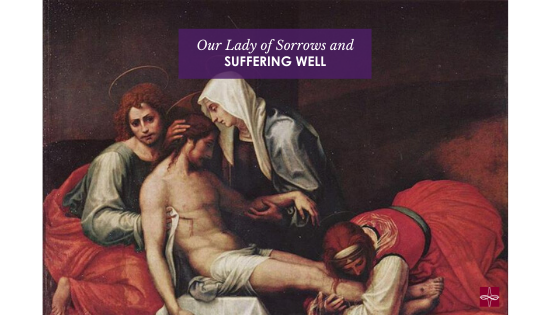







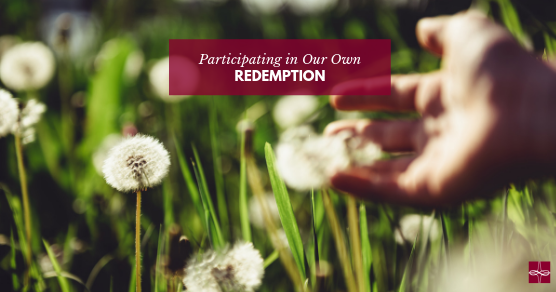

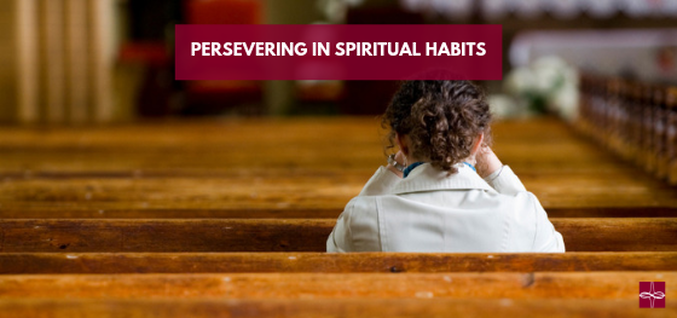

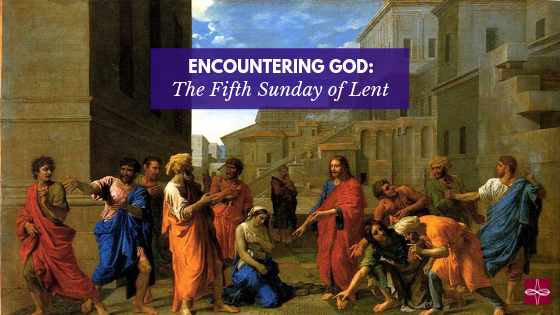

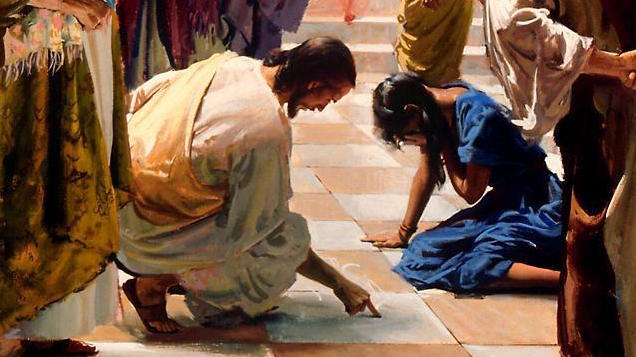


 RSS Feed
RSS Feed